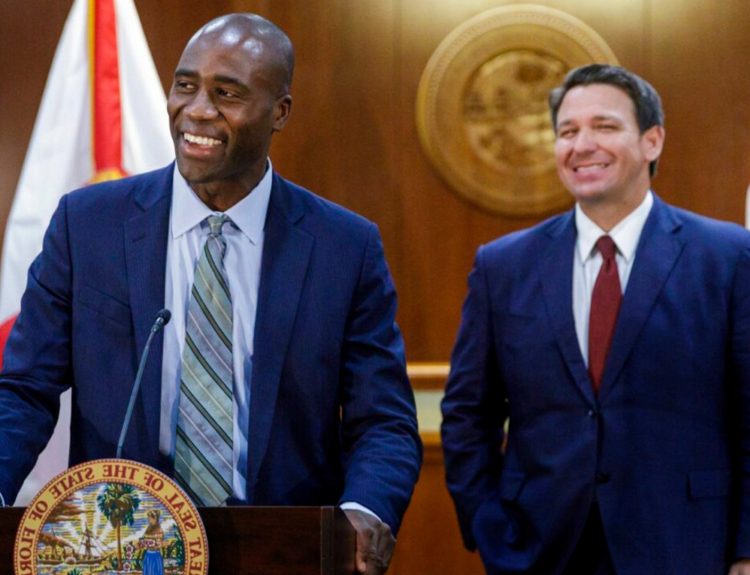Your whole world will change when you retire and some of the harsh realities may be a far cry from your retirement dream. There are plenty of bumps along the way and if you haven’t thoroughly prepared for leaving the workforce and living without a steady income you may experience some of the ugly truths about retirement. Here are some of the pitfalls to avoid and how to avoid them.
Your Net Worth Doesn’t Exactly Mean Much When You Retire

Although you may have been setting aside money for retirement and you have amassed a good nest egg, depending on the cost of living in the state you are living in, even $1 million might not last long.
The sad thing is that when people set their goals for retirement they do so without actually knowing how much they’ll need each month to cover expenses. According to a survey by the Employee Benefit Research Institute and Greenwald & Associates, only 38% of workers have properly estimated how much money they would need each month in retirement.
The Solution: Formulate an Income Plan

First, dont assume that just because you are retiring that your lifestyle will change. You won’t automatically spend less simply because you are no longer bringing in steady income. More often than not there is only approximately a maximum of a 20% reduction in living expenses. So, your retirement needs to be about to cover your current spending habits. When formulating your plan you want to consider your needs vs. your wants and decide where the red line is.
You Will Still Pay Taxes In Retirement

One thing that is always overlooked is a bigger than expected tax bill on retirement income. People always assume taxes will go down during retirement and that isn’t necessarily the case.
For those people who put most of their money into a tax-deferred retirement account like a 401k, they will have to pay taxes on the withdrawals at the regular income rate. So, for example, if you need $100,000 a year to live comfortably in retirement you will need to take out extra to cover taxes.
The Solution: Create Tax-Free Income Streams

It is crucial to have savings that can be accessed without paying taxes so you can keep more of your money. Both a Roth IRA and Roth 401k are great options because you can take money out tax-free in retirement.
Putting money into a permanent life insurance policy can be a great option for providing a source of tax-free income during retirement. You can borrow from the cash value of your policy which is a great way to maximize your options. It’s always a good idea to talk to a financial planner when deciding on a strategy that’s right for you.
Inflation Can Impact Your Retirement

As you budget your retirement income needs, inflation will be important to consider. If your aim is to maintain your current standard of living during your retirement then it’s important to consider spending more later in your life as the cost of living rises.
The Solution: Invest in Equities

As you know inflation has been painful this year and if you don’t want your hard earned money to evaporate eroded by inflation, you should consider investing in things that offer a high rate of return. It’s a good idea to talk to a financial planner and inquire about equities.
Your Savings Might Run Out

Of course your goal is to live a long and healthy life but for those without enough savings this could lead to problems. According to the CDC, the average life expectancy in the U.S. is 77 years old but about one in five 65-year-olds today will live well into their 90’s, according to the Social Security Administration. With the retirement age what it is this could spell disaster for those not prepared for a longer life.
The Solution: Prepare for a Longer Retirement

The Social Security Administration has a handy little tool called the life expectancy calculator and it can show you the average number of years you can expect to live taking into consideration your gender and age. You can use this as a jumping off point when you are calculating how long your retirement money needs to last.
Long-Term Care Could Get Costly and Wipe Out Your Savings

Even if your savings is substantial enough that you won’t outlive your savings, there is still the chance you could run out of money if you haven’t been saving with long-term care costs in mind. Long term care is not cheap.
The Solution: Inquire About Long-Term Care Coverage

Health insurance and Medicare only provide limited coverage for specific types of long-term care. That’s why you may want to consult a professional about the potential benefits of a long-term care insurance policy. If the idea of paying for insurance on something you may never use is not an idea you like, then you could look into getting a life insurance policy that provides a long-term-care benefit.
Be Prepared for Potential High Healthcare Costs

If you have overlooked the possibility of needing to go to the doctor in your old age, you might run into trouble in retirement. Medical care can get costly.
The Solution: Lower Costs and Accrue Health Savings

There are multiple ways to deal with the rising cost of healthcare in retirement. It may be beneficial for you to work longer and take advantage of receiving health insurance from your employer. You can also put money into a health savings account while you work if your health plan has a high-deductible. This gives you the opportunity to withdraw HSA funds tax-free during retirement for qualified medical expenses.
Living on Only Social Security May Be A Challenge

According to the latest figures from the Social Security Administration, the average monthly Social Security retirement benefit is $1,692. When you take into consideration rent or mortgage, car payment, insurance, utilities and the list goes on, even just living on $2,000 a month will be very difficult.
The Solution: Maximize Your Social Security Benefits

If you want to avoid retiring and having to rely only on Social Security it will be vital that you build savings while you’re working. If you are struggling and don’t foresee yourself amassing a big enough nest egg, be sure not to start collecting early at age 62. If you take advantage of that you risk your benefits being permanently reduced by as much as 30 percent. The best way to maximize your benefits is to wait until full retirement, the maximum benefit currently is $4,555 per month.
You Might Get Bored

This seems an obvious one. Imagine going from working 40 hours a week and only having 52 Saturdays a year to now having 365 Saturdays. Not everyone can feel satisfied golfing seven days a week. Getting your finances together in preparation for retirement is important but planning for hobbies, activities or even side jobs would be beneficial as well.
The Solution: Write Your Bucket List

If you don’t have a plan for what will fill your day during retirement, you could get depressed and may end up spending money in an attempt to fill your time and keep busy. Try to prevent boredom in retirement by volunteering, learning something new, or exercising more.
You May Have To Keep Working

You may end up having to go back to work after you retire and it might not be just part-time. According to the Bureau of Labor Statistics, there is a large number of older workers in the job market who work full-time rather than part-time in retirement.
The Solution: Look For Work You Enjoy

Returning to work in retirement isn’t necessarily a bad thing. Besides the obvious financial benefits, working can help stave off boredom. There are plenty of jobs that are perfect for retirement offering the chance to explore new interests. Many retirees are finding their footing in the gig economy giving them the freedom to set their own hours.
You Might Have To Live With Your Kids

The last thing most parents want is to have to rely on their kids for financial care but that doesn’t mean it may not happen one day. If you don’t plan for retirement the lack of funds could force you to move in with your children.
The Solution: Prioritize Your Retirement Savings

If you don’t want to have to rely on your kids in retirement then you need to keep all of the money you can. Start by not giving them financial handouts.
You May Feel Guilt When Spending Your Savings

After all those years pinching pennies to build your retirement savings you could be excited to retire and enjoy the fruits of your labor. It may be hard to change your mindset from frugal to spender once you have become addicted to saving money.
The Solution: Budget Well

One way to avoid the guilt of spending your savings, it might be beneficial to create a minimum and maximum budget. It may make you feel better when spending to have guard rails. People who fear spending their money may miss out on living a fulfilling retirement.
You Might Have To Withdraw Money You Don’t Need

If you put money into a retirement account that requires you to start taking minimum withdrawals the year you turn 70 and a half, you will have to withdraw a specific amount even if you don’t need the money. If you don’t you will be on the hook for a tax penalty equal to 50% of the amount you should have taken out.
The Solution: Don’t Put All Your Savings in a 401k

It’s always best to diversify and one of the ways to do that is to pack away some of your savings in a Roth IRA, which doesn’t have required minimum distributions. If you have a Roth 401k, you can convert it to a Roth IRA when you retire.
Better Stay Put

Selling your property and relocating might seem like a great way to maximize your retirement savings, but moving in retirement can backfire. The problem with this strategy is you may move to save money and may not like where you moved to, and end up relocating several times until you land somewhere you are happy.
The Solution: Test Out New Locations

Before you contact your local real estate agent and pack up your things you may want to consider renting in the location you are considering first. If you find that the locale is to your liking and it suits your lifestyle then you can move there permanently but if not then you can return home without the hassle.
Keeping In Touch with Your Friends May Be Hard

Although you have much more time to socialize with friends when you retire, you might find it difficult if your finances are different and don’t match up.
The Solution: Set the Budget

One way to avoid the stress of trying to keep up, you should try suggesting the activity first so that way you can remain within your budget. Don’t be afraid to turn down invitations to outings that would break your budget. If you can’t afford it just don’t go.






